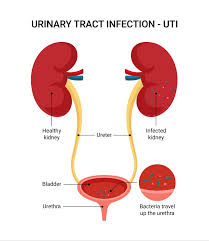Understanding Urology: Kidney Stones, UTIs, Prostate Health & More
Urology is a medical specialty focusing on the urinary tract and the male reproductive system. It deals with conditions affecting the kidneys, ureters, bladder, urethra, and male reproductive organs such as the prostate and testes. These systems play a vital role in filtering waste, balancing body fluids, and maintaining overall health. Let’s look at some common urological conditions and how they impact our well-being.
1. Kidney Stones
Kidney stones are hard mineral deposits that form in the kidneys when certain substances—like calcium, oxalate, or uric acid—become concentrated in the urine. They can cause severe pain in the back or sides, nausea, and blood in the urine. While small stones may pass naturally, larger ones might require medical treatment such as shock wave therapy or surgery. Drinking plenty of water and maintaining a balanced diet can reduce your risk.
2. Urinary Tract Infections (UTIs)
UTIs occur when bacteria enter the urinary system, often affecting the bladder and urethra. Symptoms include frequent urination, burning sensation during urination, cloudy urine, and pelvic discomfort. While more common in women, UTIs can affect men as well. Prompt antibiotic treatment is essential to prevent the infection from spreading to the kidneys.
3. Prostate Health
The prostate is a small gland in men that produces seminal fluid. With age, the prostate can enlarge—a condition known as benign prostatic hyperplasia (BPH). This can cause difficulty urinating, weak urine flow, or frequent nighttime urination. Prostate cancer is another concern, especially in older men. Regular screenings, such as PSA blood tests, help detect issues early when treatment is most effective.
4. Other Urological Concerns
- Incontinence: Loss of bladder control, more common in older adults and women after childbirth.
- Erectile Dysfunction (ED): Difficulty in achieving or maintaining an erection, which may be linked to vascular, hormonal, or psychological factors.
- Male Infertility: Issues with sperm production or delivery affecting conception.
Maintaining Urological Health
- Stay hydrated to flush out toxins.
- Maintain a balanced diet low in excessive salt and processed foods.
- Practice good personal hygiene.
- Get regular check-ups, especially if you have a family history of kidney or prostate issues.
- Avoid smoking and limit alcohol intake to protect kidney and bladder health.
When to See a Urologist
Seek medical attention if you notice blood in your urine, severe back or side pain, difficulty urinating, or recurrent UTIs. Early diagnosis and treatment can prevent complications and improve quality of life.
https://www.youtube.com/watch?v=8V4HpYuJ0uI&ab_channel=Medicas





Comments